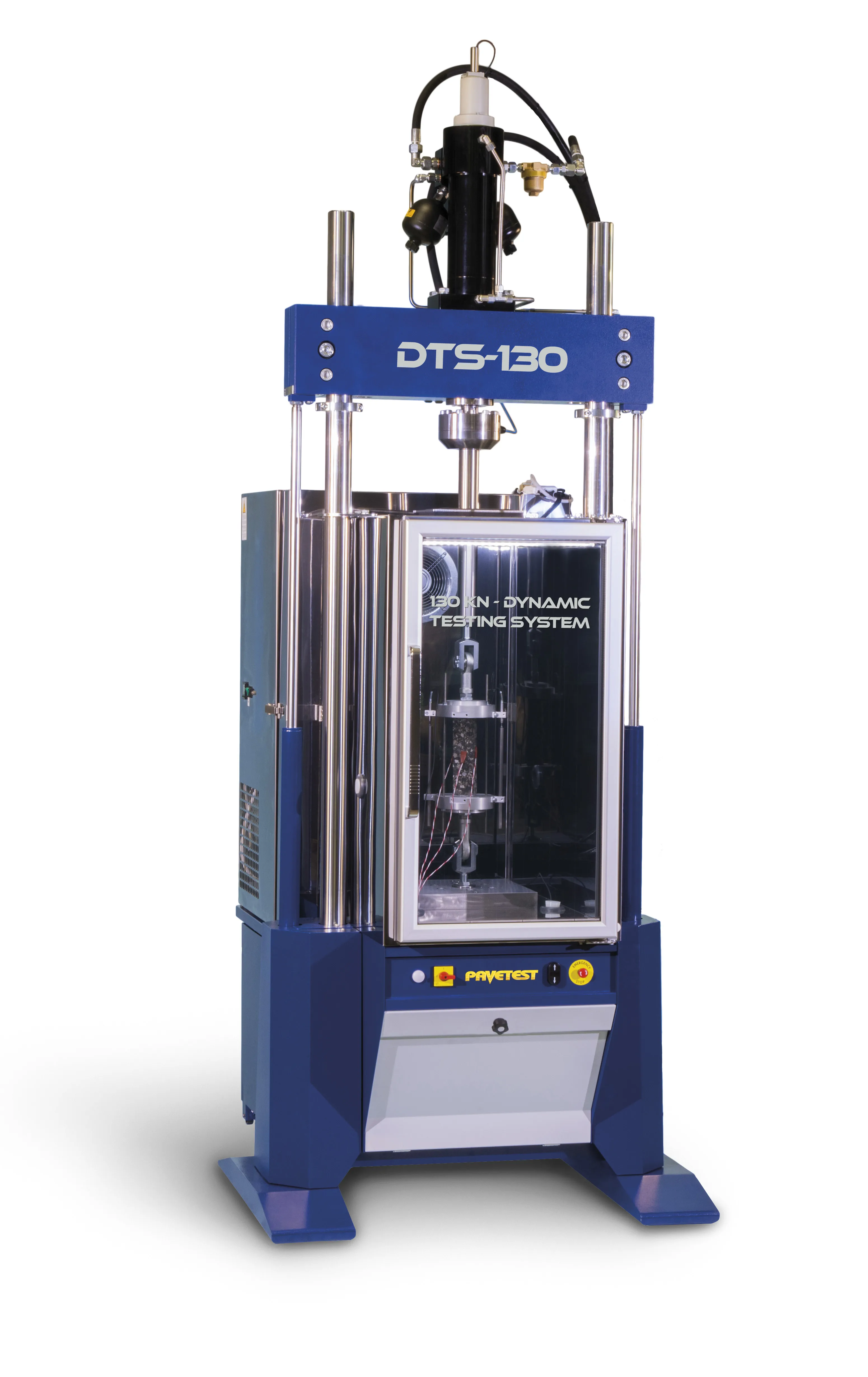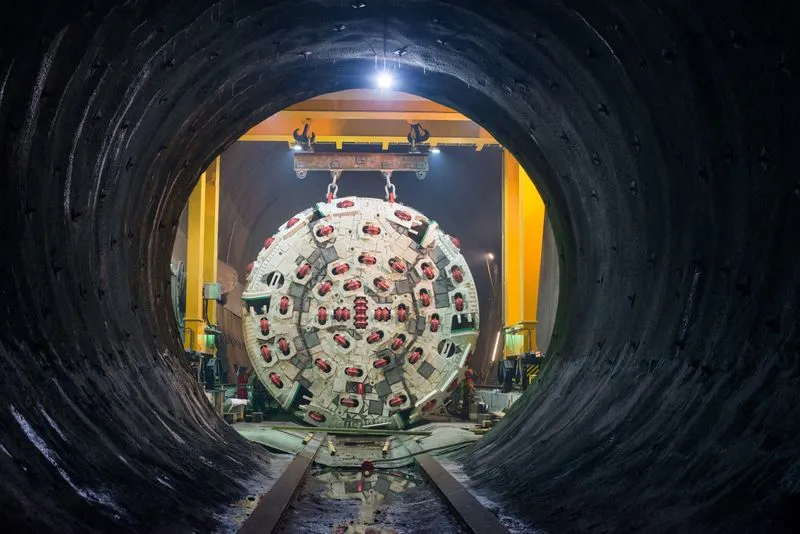Matest subsidiary Pavetest has launched the DTS-130, a 130kN servo-hydraulic dynamic testing system. The machine allows large asphalt specimens to be tested at temperatures down to -50oC and has been developed with the Chinese market in mind.
“This size of machine has become pretty much the standard in China for historic reasons,” explained Pavetest managing director and founder Con Sinadinos. “I would estimate that 90% of this size of machine that are sold goes to China.”
While the size of the machin
April 28, 2015
Read time: 3 mins

“This size of machine has become pretty much the standard in China for historic reasons,” explained Pavetest managing director and founder Con Sinadinos. “I would estimate that 90% of this size of machine that are sold goes to China.”
While the size of the machine is unnecessary for many tests, organisations in China prefer to buy a machine which is big enough to cover all eventualities, says Sindadinos. Pavetest hopes that its machine will prove popular with universities, since many of the institutions who use this type of equipment have already invested in a machine and accessories.
The DTS-130 uses a two-piece concept for the climatic chamber which Pavetest adopted for its DTS-30 machine. The temperature control unit attaches to the test chamber using a magnetic seal and can be wheeled away when not required. According to Pavetest, the benefits of this approach are that servicing, replacing or upgrading the temperature control unit is easy and it can be removed without dismantling the machine or disrupting the testing program.
Though the DTS-130 is comparable in price to competitor machines, Sinadinos believes that it is the control and data acquisition system which gives the Pavetest machine the edge. The 16-channel control and data acquisition system and TestLab universal software provide sampling rates up to 192,000/sec, 20 bit (1/1,000,000) resolution over the entire transducer range and up to 64 times oversampling. This means that the number it records is the average of up to 64 samples, giving cleaner data.
Fellow Pavetest director Alan Feeley, former head of R&D at
Pavetest provides ‘Method’ files for all the popular national and international test methods, so that the user can clone and/or change these to suit their personal requirements. In most Method files, the analysis is done in Excel, so the user can modify the analysis based on their individual needs.
The software also allows for users who are not test-savvy to be prompted, says Sinadinos. “At the other end of the scale, we have people who are not PC-savvy or familiar with software, perhaps someone towards the end of their career who has been brought into the lab. Our software includes the ability to write a wizard that takes users through the tasks and steps they need to perform.”









